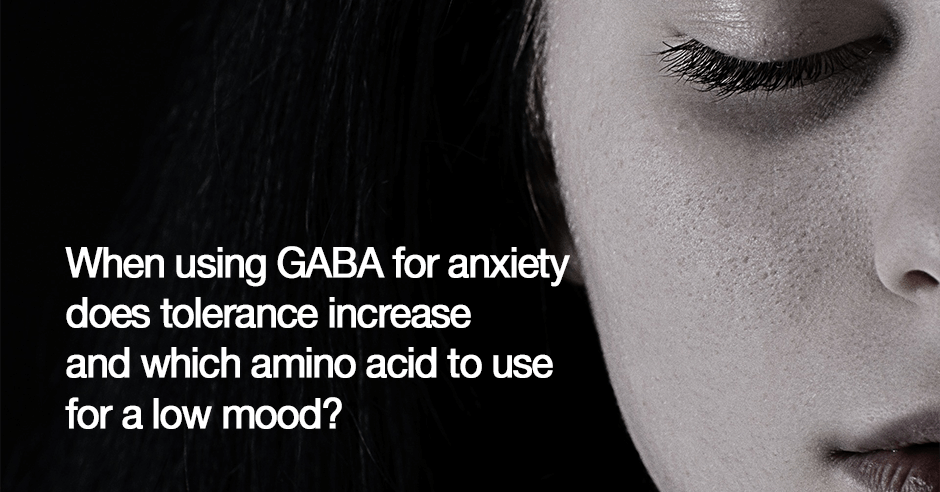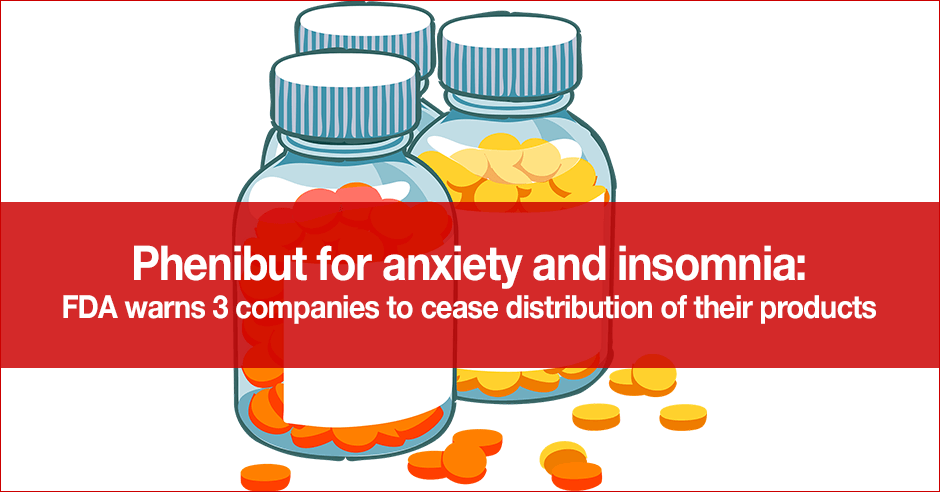
Today I’m sharing some great questions I’ve received about GABA and serotonin support for anxiety and low mood, and my feedback to give you some ideas on what to look for as you use the amino acids for your own issues (or with clients/patients if you’re a practitioner).
I cover possible reasons for ongoing low GABA levels, long-term use of the amino acids, low mood associated with menopause, problems with mainly sugar- and gluten-free, the role of the adrenals and thyroid, the amino acids I’d start with for low mood, how lithium orotate may help, how to know if collagen is causing a low mood and making you more anxious, and some resources for you.
GABA tolerance has increased
Gaba has been a lifesaver for my anxiety! I also use taurine sometimes for anxiety too, and that has helped too. Right now, I take 1000 mg [of taurine]. As for GABA (I now take 1000 mg of that also) I have noticed that my tolerance for it has increased.
Here is my feedback: I’m really pleased GABA and taurine are helping ease your anxiety. I have not seen tolerance to be a factor with my clients using GABA and I’m not aware of any research on this topic. I would look into what could be depleting GABA at a faster rate so you seem to need more and more.
This could be caused by:
- increased stress which lowers zinc and increases cortisol
- poor gut health and dysbiosis (there is a bacteria in the gut that may consume GABA – it’s called gabavorous)
- low zinc and low B6 (which are needed to make GABA and other neurotransmitters)
- toxin exposure (we’re now seeing that GABA has a protective effect – this blog covers have GABA is protective of the thyroid after fluoride exposure)
- thyroid problems (the amino acids are less effective in this instance)
Keep in mind that long-term use of the amino acids is not the plan. Once the diet is addressed and the other underlying biochemistry, nutrient deficiencies, toxins etc. are addressed they should no longer be needed. At most, an occasional “top-up” may be needed.
Low mood associated with menopause
Which amino acids would you recommend for low mood associated with menopause? No panic attacks but a crashing low mood for 24hrs or more before slight recovery, a few easy days and then the cycle begins again. Diet is mainly sugar- and gluten-free. Any suggestions would be appreciated, thank you
Here is my feedback: When I hear “diet is mainly sugar- and gluten-free” with mood swings I always look into gluten exposure and blood sugar dips. Keeping a food mood log is an easy first step to see if the low mood is tied to what is being eaten and when.
I would recommend the complete removal of gluten and sugar. Gluten can trigger depression, anxiety, OCD and lead to many psychiatric symptoms. Blood sugar swings can cause both depression and anxiety. The amino acids make it easy to quite sugar and gluten – no willpower required and no feelings of deprivation. Do the questionnaire and do a trial of the amino acids that apply. Based on the above symptoms I’d suspect tryptophan and tyrosine may help and are always a good first step while everything else is being figured out.
I would also look at adrenal function as they take up the slack in menopause and rule out Hashimoto’s thyroiditis and Graves (as you can get mood swings with both as the thyroid levels shift).
Low lithium can also cause mood swings too and lithium orotate can help to keep an even mood, allowing the amino acids to be more effective.
Finally, I’d want to know if collagen, gelatin or bone broths have recently been added to your diet and are being consumed in an on-an-off pattern that correlates with the low mood. Certain susceptible individuals find that it lowers serotonin and increases depression and anxiety, and causes insomnia.
Next steps are a full workup looking at sex hormones, low zinc, low B6, low magnesium, the gut, EMFs, sleep and other dietary factors like salicylates, histamine, glutamates etc. We look at all the possible 60+ nutritional and biochemical root causes and address them or rule them out.
It’s also important to have a good support system in place for those very low days – friends and family members, being part of a community and even keeping a mental health support line number close at hand.
And of course, I always say this: get out in nature, get some exercise, hug someone and have a good laugh.
Resources for you
- My book The Antianxiety Food Solution (my Amazon affiliate link) has an entire chapter on the amino acids GABA, tryptophan, tyrosine, and DPA (and how to use them), a chapter on blood sugar balancing and glutamine and a chapter on gluten issues (and much more). Read it and become a savvy health-advocate for yourself. Become someone who is well-informed about the amino acids, the precautions and nuances, and all the nutritional approaches for anxiety-relief. Share a copy with your doctor and point out the references.
- If figuring it out alone or reading my book feels overwhelming to you, or you’re afraid to use the amino acids on your own, my home-study Amazing Aminos for Anxiety program walks you through a step-by step approach on how to figure out which symptoms are tied to which neurotransmitter deficiency, and how to trial each respective amino acid. Stay tuned for a special upcoming launch with live Q and A calls so you can get your questions answered. (If you have recently purchased the homestudy ONLY version we will be contacting you to invite you to participate.)
- Here is a blog to read if you’re new to GABA: GABA for the physical-tension and stiff-and-tense-muscles type of anxiety
- Here is a blog to read if you’re new to tryptophan: Tryptophan for the worry-in-your-head and ruminating type of anxiety (it’s a blog about low serotonin anxiety but applies to low-serotonin low mood too)
- Here is a blog to read if you’re new to tyrosine: Tyrosine for focus, motivation, energy, a good mood and possibly even anxiety
- You can find the amino acids in my supplement store here.
Can you relate to either of these questions? And are you good at playing a detective to figure out why something may not be working as expected?
What has worked for your anxiety and/or low moods?
Feel free to post questions in the comments too.
And let me know if you’re interested in the homestudy program with live Q and A calls. (If you have recently purchased the homestudy ONLY version we will be contacting you to invite you to participate.)
